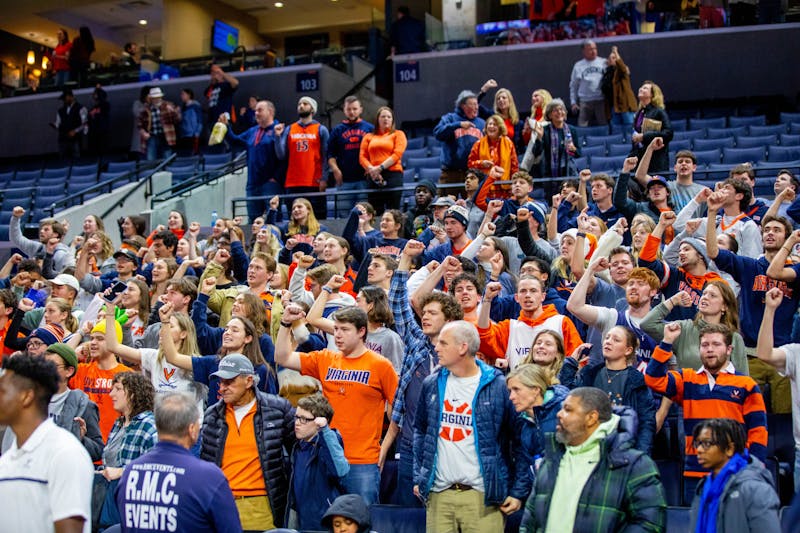Last year, Governor Glenn Youngkin announced The Washington Capitals and Wizards were to move to Alexandria in an ill-fated $2 billion deal to build a sports stadium and entertainment district in Northern Virginia. If Governor Yonkin had reworked the agreement with the advice of many economists and politicians, more than 30,000 new jobs would have been created in the commonwealth. However, after a fierce battle with Congress, financing Agreement between Youngkin and Monumental fell The conflict between Governor Youngkin and the Legislature should be closely scrutinized so that similar projects benefiting the commonwealth can succeed and avoid the many funding concerns that have stalled them. Finish this project.
The first failure of this project was the unfair distribution of costs. This serious failure absolved Monumental of its implied financial liability while imposing an undue burden on Virginians. The project in its current state looks like this: funded The $2.8 billion in bonds issued by the state will place a significant burden on the public as they invest in the project's future. In contrast to this large donation from residents, Monumental allocated only $400 million to invest in the stadium construction, nearly one-seventh of the amount Virginians were expected to donate. Ta. Here lies the first hint of financial mismanagement and misplaced priorities.
Given the disproportionate distribution of funding, states would have needed to redirect funding from other important and underserved legislative priorities. For example, rural Virginia has long had poor transportation infrastructure. suffering There are nearly 2.5 times more traffic fatalities here than in other parts of Virginia. However, a monumental project would have required: assign Funding for the development of the Greater Alexandria area Transportation facilities before the project is completed. Rather than prioritizing existing projects, Expanding If passenger rail were to be built across rural Virginia, the sports stadium project would reallocate $200 million in state funds to infrastructure improvements in Northern Virginia. While this may have benefited the project, it would have come at the expense of rural development. Given the clear disparity between urban and rural development, Virginia politicians must ensure that future projects do not come at the expense of rural communities.
Furthermore, future deals should avoid exploiting workers in the way that would likely occur if the Monumental deal were successful. Throughout his term, Mr. Yonkin repeatedly said, were hostile He promoted the development of labor unions through his efforts to abolish collective bargaining and labor rights policies. This proposal was no exception.Northern Virginia union leaders sound alarm over laundry list Concerns about project financing and the impact on union labor.Specifically, the American Federation of Labor and the Congress of Industrial Organizations said The proposal would create low-wage jobs that would not meet current labor protections. In fact, the concerns for these workers appear to be so bad that the United Democratic Party opposition party refused to give the proposal a public hearing, citing Governor Yonkin's failure to comply with the demands of labor leaders. Future proposals could not be so severely lacking in creating competitive, decent jobs.
The need for jobs that provide sustainable income was further emphasized by the fact that the proposal was largely funded with taxpayer money. But the potential for exploitation of workers' rights seemed to suggest that the glorious economic benefits promised by Youngkin would not be equally distributed. Had Yonkin offered some concessions to the Democratic-controlled Legislature, the proposal could have protected the interests of Virginians while also stimulating Northern Virginia's economy.
Past stadiums in other states have shown that Virginia has the potential to pull off such construction projects if it takes the right steps.For example, in Nevada, private funds included The majority of the funding is directed towards the development of the Las Vegas Raiders stadium. Additionally, instead of using bonds to finance the project, the Nevada government proposed a hotel tax that would primarily affect out-of-state residents. With calculated measures designed to maximize stadium benefits while protecting taxpayers in a manner similar to Nevada's, Virginia could have reaped the benefits of a stadium without incurring any risks. is.
Sports stadiums become community icons and help boost the state's economy. But ultimately, while the stadium plan may have had long-term economic benefits, growth, numerous funding issues and issues surrounding worker rights were ultimately too great to be a worthwhile investment. Future politicians should analyze the success of other states with similar projects and work on a bipartisan basis to prioritize public concerns over corporate interests.
Arjun Iyer is an opinion columnist who writes about politics for Cavalier Daily. You can contact him at: opinion@cavalierdaily.com.
The opinions expressed in this column are not necessarily those of Cavalier Daily. Columns represent the views of the authors only.


